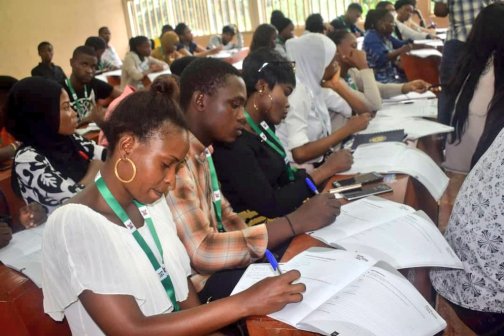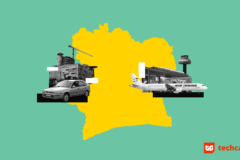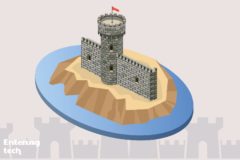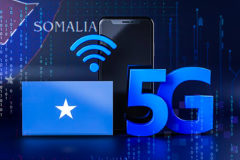Written by Olamilekan Toyeeb Abolade, NACOS National President
Mowa Ijasanmi is a university student in southwest Nigeria. He spends as much as ₦18,000 ($50) every month to access the internet. His time on the internet is spent attending virtual meetings, streaming or downloading lecture videos, and communicating with people. The high cost of data in Nigeria is one of the many challenges Nigerian students like Mowa face.
High Cost of Internet
In terms of usage, Nigerian students and youths are among the highest users of internet services especially those in the IT sector. In a recent survey of 85 countries, Nigeria was reported to have one of the highest costs of internet service globally and in Africa. On the overall analysis of the digital quality of life index in 2020, Nigeria ranked 81st out of 85 countries. To improve the state of the internet, the Nigerian government last year announced it was looking at achieving 70% broadband penetration in four years and digitizing government processes for openness and speed of service delivery. With Nigeria’s internet penetration at almost 50%, achieving this feat looks like a low hanging fruit.
Investing in Technology Infrastructure
As part of its efforts to provide technology infrastructure, in November 2020, the Federal Government of Nigeria commissioned the National Centre for Artificial Intelligence and Robotics in Abuja. The centre was said to be equipped with a 3Dprinter, training facilities, a digital innovation lab, a co-working space for startups, and many more.
In February 2021, the construction of a National ICT Park, which was estimated to cost a whopping N8.1Billion ($23.4M), was approved.
These recent projects make one wonder why so much is being spent on buildings when a significant portion of the nation’s citizens are still battling with digital illiteracy,
It’s worth questioning if these projects just sound good on paper but in reality, have little or no impact. How many individuals have access to these facilities?
Improving Digital Literacy
Another target set by the Nigerian government is to achieve 95% digital literacy in 10 years. I agree it’s the right step forward and one of the prerequisites of having a digital economy, but what steps are taken to reach this goal?
With a population of over 200 million people, we cannot deny the fact that Nigeria is in dire need of digital literacy infrastructures and reformed communications policies.
The National Information Technology Development Agency (NITDA), under the Ministry Of Communications And Digital Economy recently announced the commencement of Digital Literacy and Skills Programme for States. This is a great development but the question here is who are the beneficiaries of this skill programme as it is said that only 540 per state and a total of 20,000 youths will be beneficial of the program across the 36 states of the federation? Just 20,000 youths out of over 100million youths in the country.
One solution is to recognize and engage local actors and stakeholders to take up the responsibility. By doing this, this program would be able to benefit a wider audience.
Enabling environment for tech startups
The tech startup space has shown great promise in Nigeria, with the success stories of companies like Paystack, Flutterwave and Interswitch. A significant portion of the $1.3 billion venture money that was invested in Africa, was invested in Nigerian based companies. It’s expensive to run a tech startup. The cost of getting technological gadgets is on the rise – Smartphones, Tablets, Laptops, IoT devices and several others. It’ll be helpful if the government can intensify its efforts to reduce the startup costs of running a tech startup. Issuing grants and forming partnerships with essential service providers like Amazon Web service would be helpful.
In conclusion, there’s so much that the government can do to create an enabling environment for Nigerian students, these are just a few out of many.





















